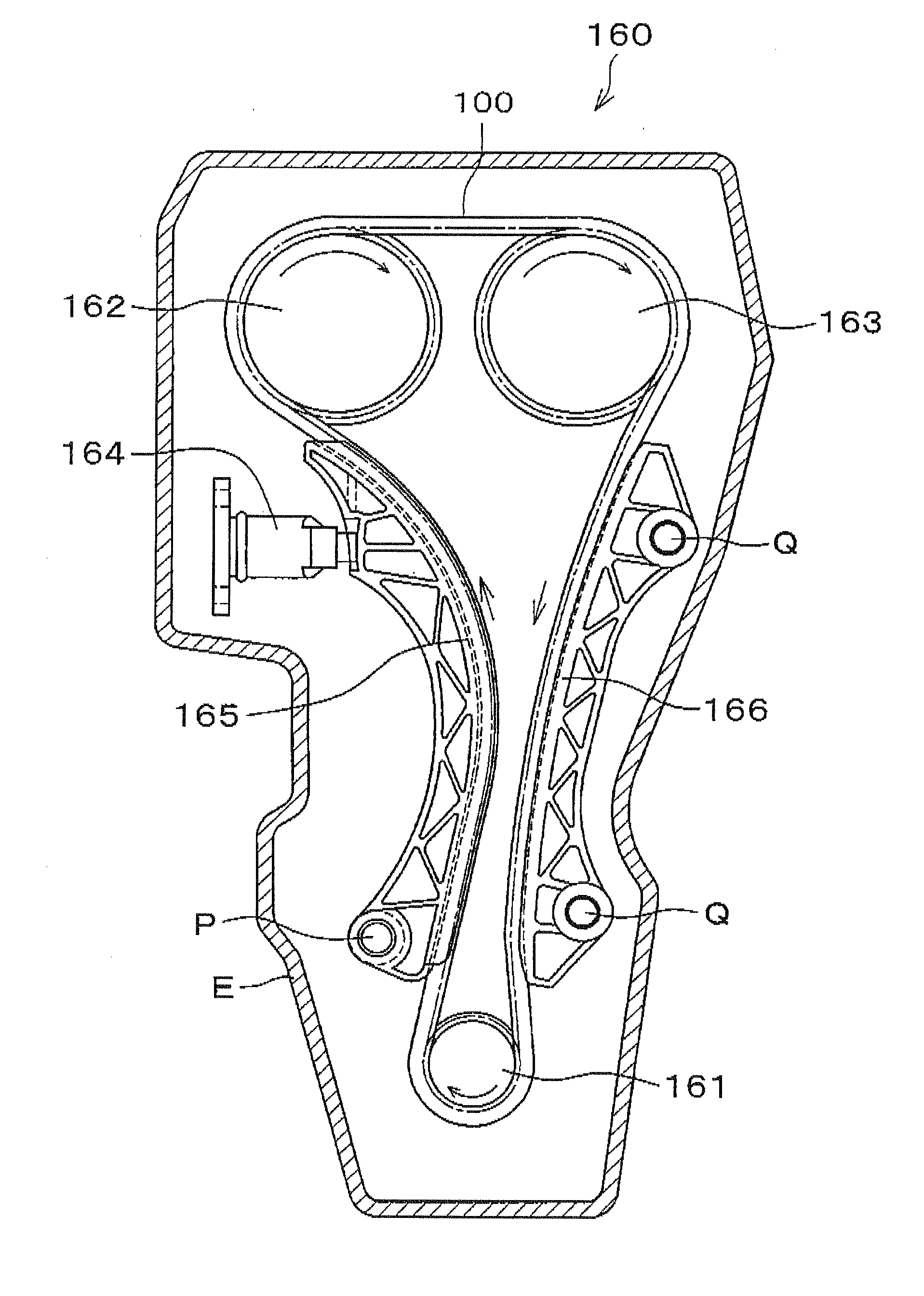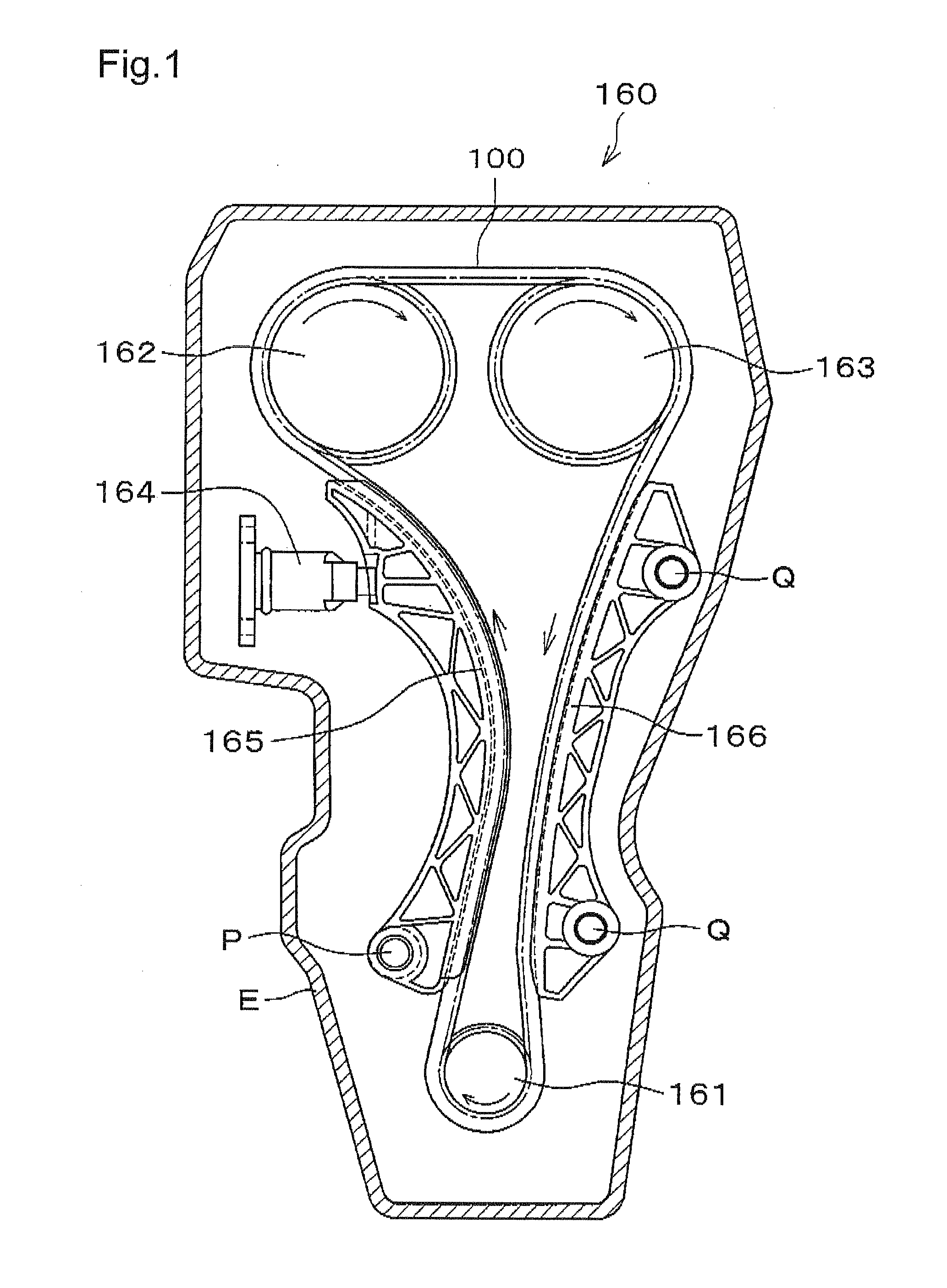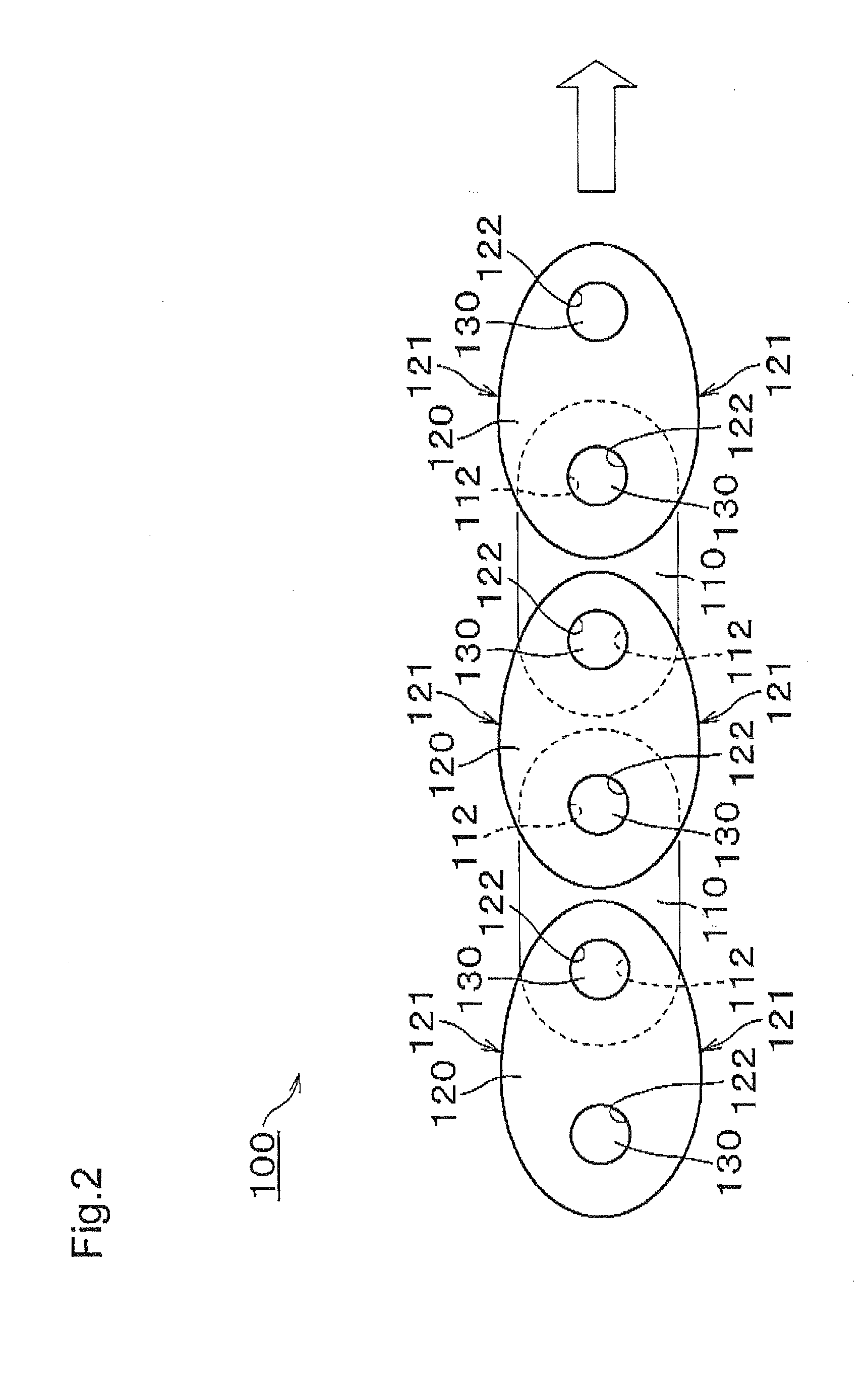Chain
a low friction, chain technology, applied in the direction of chain elements, belts/chains/gearrings, chain elements, etc., can solve the problems of large amount of abrasive wear of link plates, affecting the service life of chain components, so as to reduce the concentration of sliding contact at the same position on each link plate, the effect of reducing the amount of abrasive wear
- Summary
- Abstract
- Description
- Claims
- Application Information
AI Technical Summary
Benefits of technology
Problems solved by technology
Method used
Image
Examples
first embodiment
[0032]The chain 100, according to the invention, is formed as shown in FIG. 2. On each side of the chain, a plurality of inner link plates 110 and a plurality of outer link plates 120 are arranged in alternating, overlapping relationship, and interconnected articulably to one another by connecting pins 130 in connecting holes 112 and 122.
[0033]In this embodiment, which is a rollerless bushing chain, bushings are fitted to connecting holes 112 of the inner link plates 110, and connecting pins 130 extend through and fit loosely in the bushings as in the above-described chain 500 of FIG. 10. In the case of a roller chain, the chain structure is similar to that of FIG. 2, except that rollers are loosely rotatable on the outer circumferences of the bushings.
[0034]The upper and lower edges of the outer link plate 120 are convexly shaped edges 121, formed in a continuously curved shape. The distance between the upper and lower edges of the inner link plates 110 is to be smaller than the di...
second embodiment
[0042]In the invention shown in FIG. 8, a chain 200 is composed of alternating inner and outer links comprising respectively inner link plates 210 and outer link plates 220. The links are arranged in alternating, overlapping relationship along the length of the chain and interconnected articulably by connecting pins 230. Inner links are formed of two inner plates connected in laterally spaced relationship by a pair of bushings fitted to bushing holes in the link plates. The outer links are formed by a pair of laterally spaced outer link plates connected by pins fitted to pin holes in the outer plates and extending rotatably through bushings of the inner links whereby the inner and outer links are connected in articulating relationship. In the case of a roller chain, rollers can be loosely fitted on outer circumferences of the bushings.
[0043]The upper and lower edges 221 of the outer link plates 220 and the upper and lower edges 211 of the inner link plates 210 are convex and formed ...
third embodiment
[0045]In the invention shown in FIG. 9, a chain 300 is composed of toothed inner link plates 310 and toothed outer link plates 320 arranged in widthwise rows interleaved with one another and connected articulably by connecting pins as in a conventional silent chain.
[0046]The lower edges of the link plates 310 and 320 are respectively formed with teeth 313 and 323 for meshing engagement with sprockets (not shown).
[0047]The upper edges 321 of the outer link plates are in the form of continuous convex curves for sliding contact with a guide member. As in the outer link plate 120 of the first embodiment, shown in FIG. 3, the distance between a line connecting the centers of the front and rear connecting holes 322 of these outer link plates and the convexly-shaped edge 321 is a maximum at a position spaced from the midpoint between the connecting holes. The parts of the link plate backs that contact the guide surface are also preferably in the form of an arc as in the previously describe...
PUM
 Login to View More
Login to View More Abstract
Description
Claims
Application Information
 Login to View More
Login to View More - R&D
- Intellectual Property
- Life Sciences
- Materials
- Tech Scout
- Unparalleled Data Quality
- Higher Quality Content
- 60% Fewer Hallucinations
Browse by: Latest US Patents, China's latest patents, Technical Efficacy Thesaurus, Application Domain, Technology Topic, Popular Technical Reports.
© 2025 PatSnap. All rights reserved.Legal|Privacy policy|Modern Slavery Act Transparency Statement|Sitemap|About US| Contact US: help@patsnap.com



